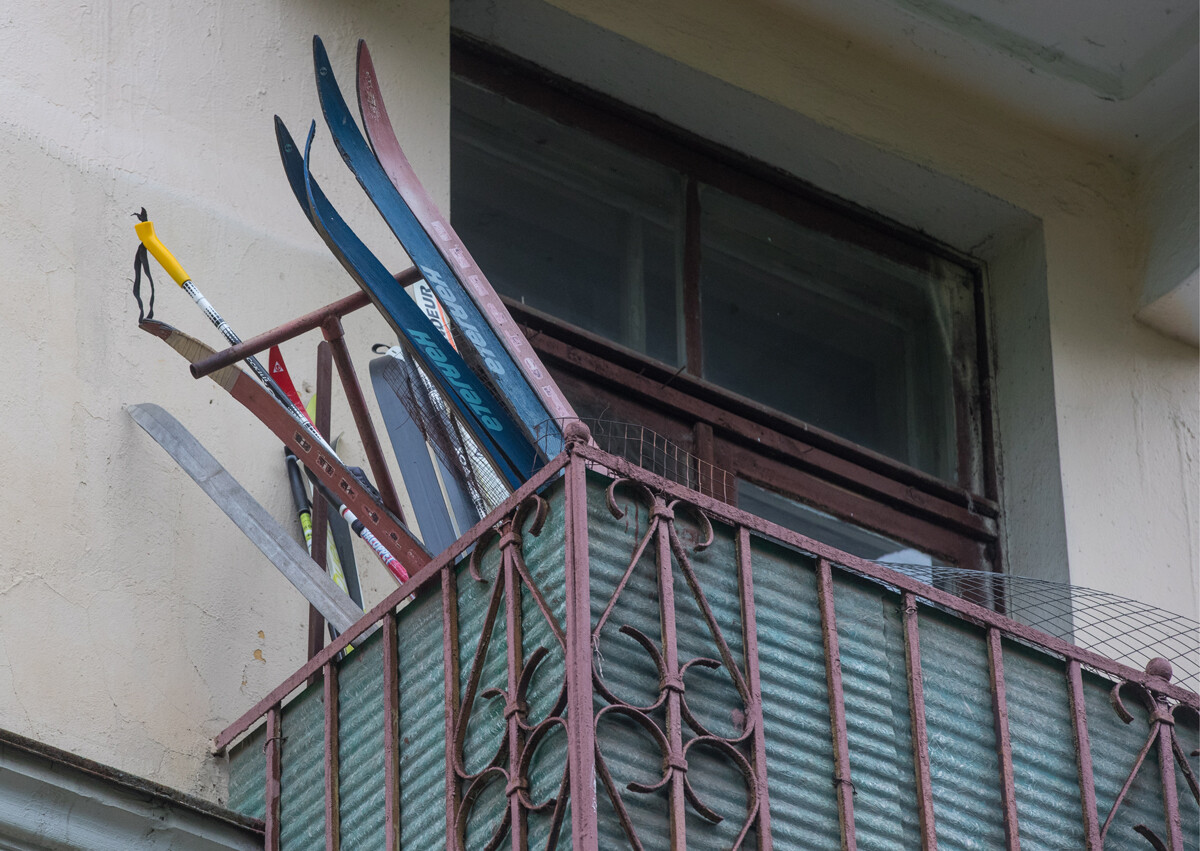What a common Soviet apartment looked like (PHOTOS)
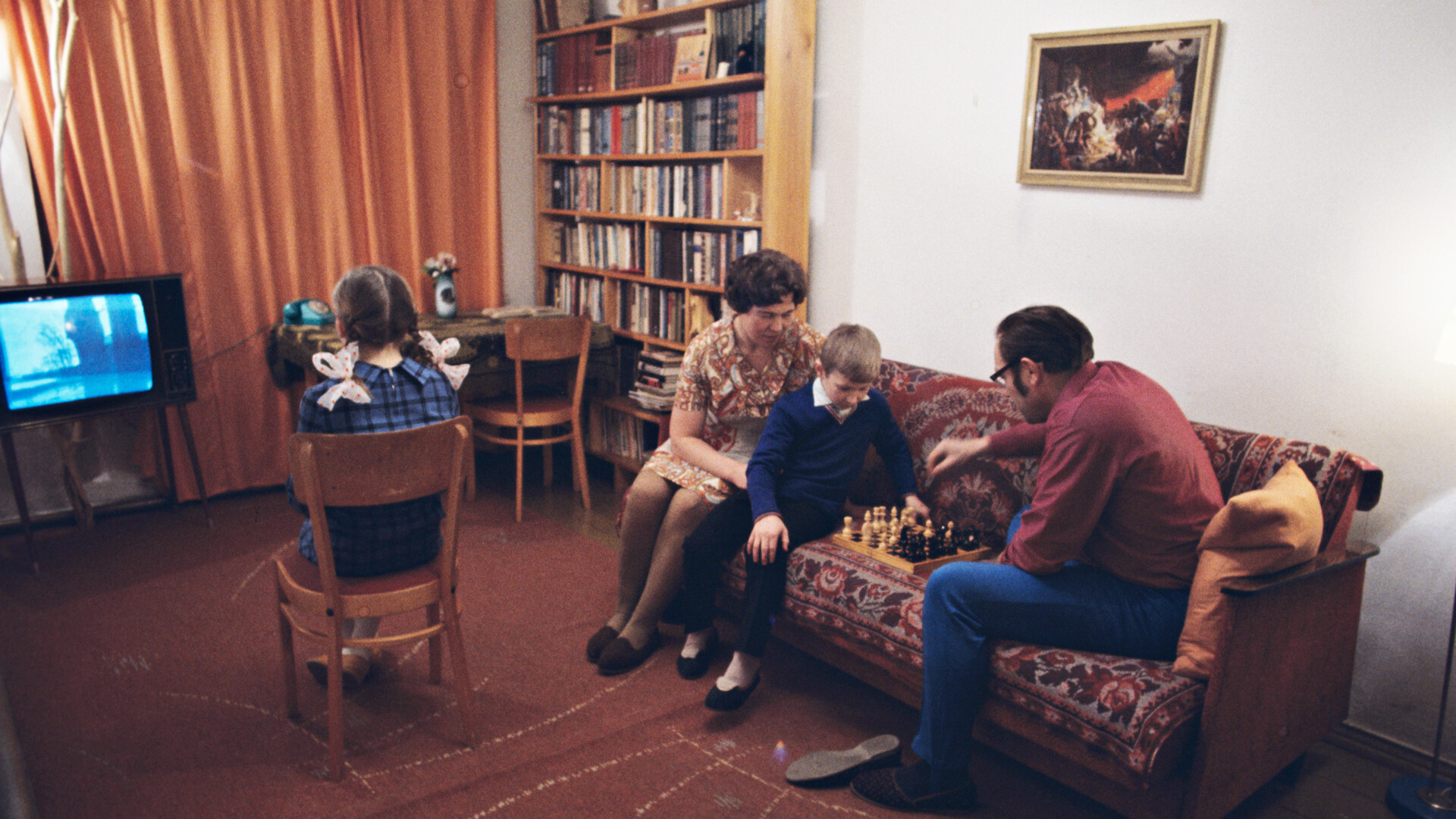
Welcome to a typical Soviet apartment. Let’s start exploring it from the very entrance, shall we? There was a coat rack and a place to take off your shoes (Yes, don’t forget to take them off!) and slip on tapochki, or house slippers. Usually, you could also find a small table with a telephone and a mirror.
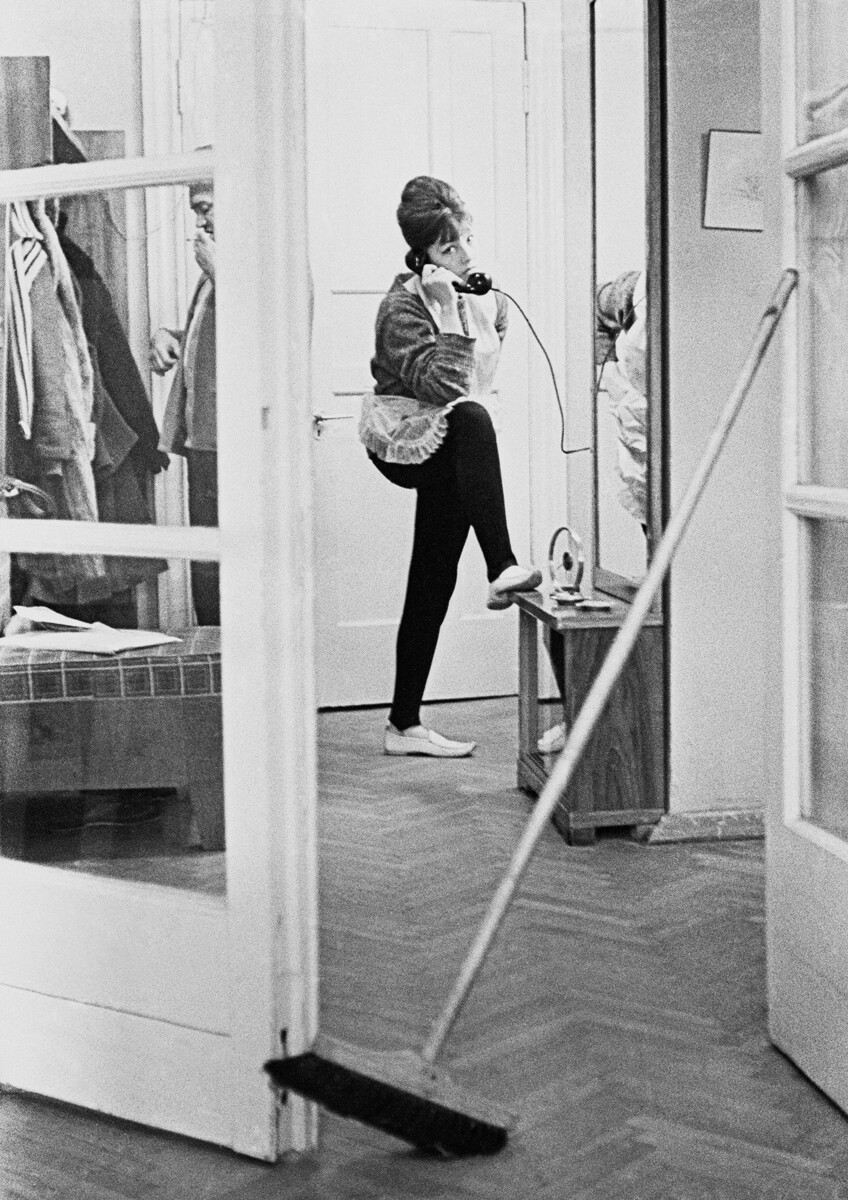
The hallway, lobby or vestibule… are even too big words for most Soviet apartments’ entrances. There was usually less than two meters of space.
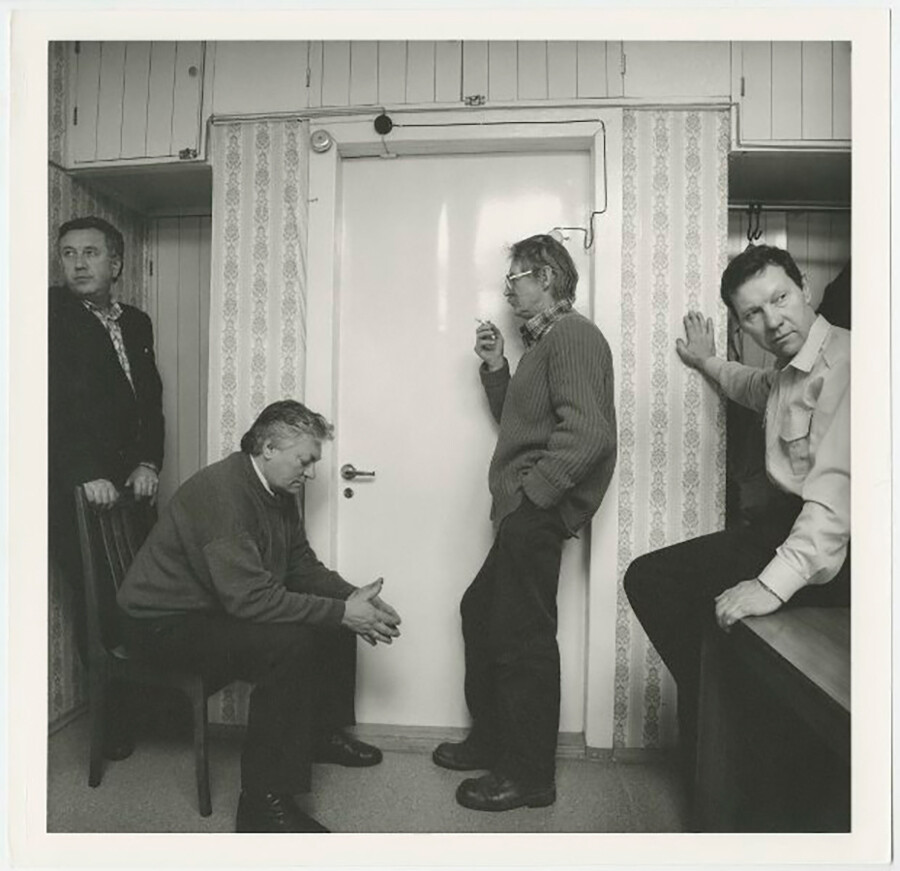
Usually, a corridor brought one to rooms and the kitchen. In communal apartments, they were sometimes so large that kids could cycle across them. Usually, people used them to store some household items.
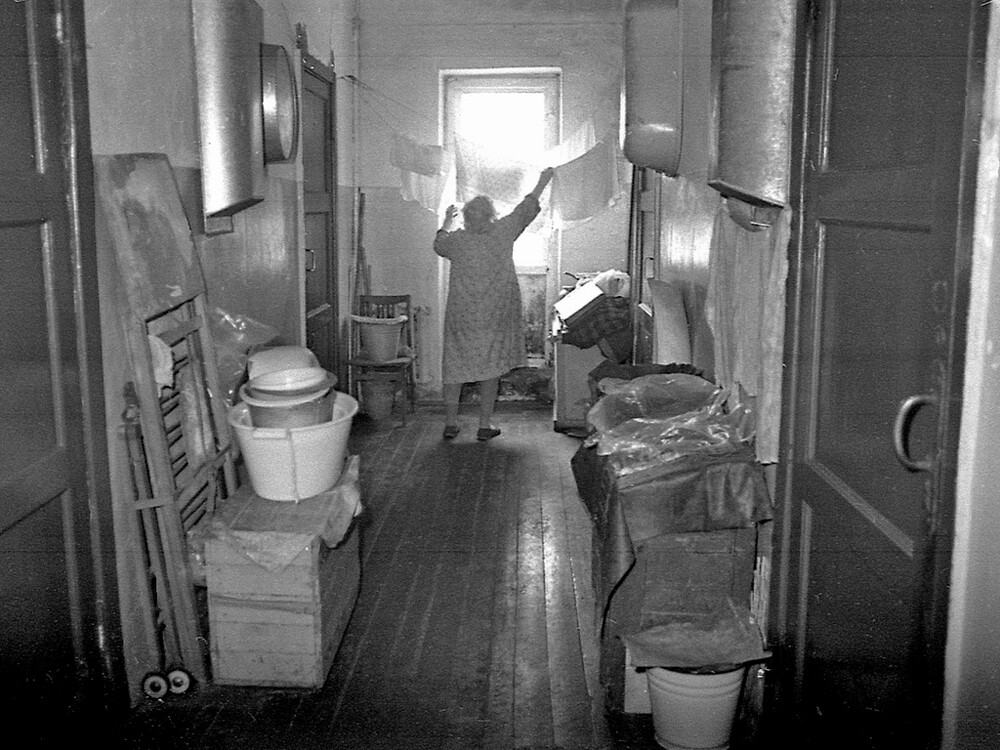
However, corridors in khrushchyovka residential buildings were incredibly narrow, just about a meter wide. In newer apartments (like pictured below, built ahead of the 1980 Olympic Games in Moscow), there was a kind of hall with wider space.
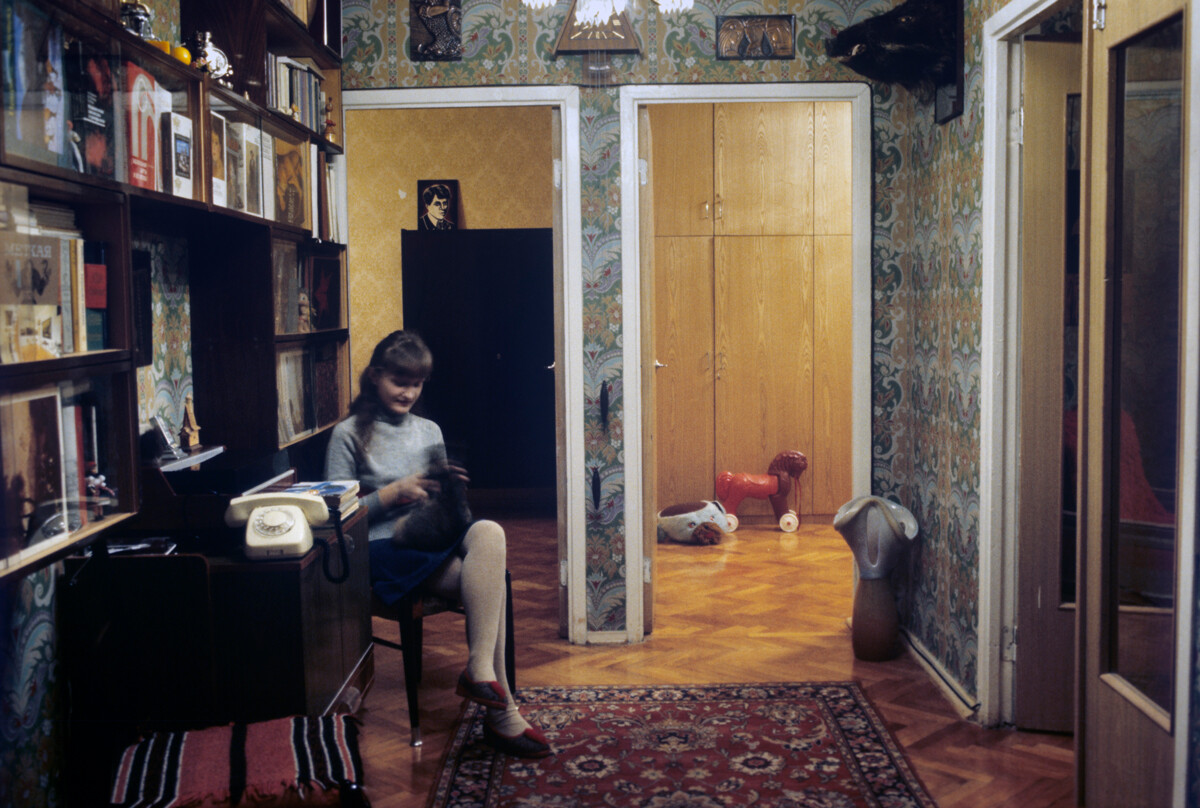
Many design and interior decisions were caused by the lack of space, as most of the Soviet apartments built from the 1960s were very small. So, even in the corridor, some very unexpected things could be stored, such as bicycles or sleds hanging on the wall. Or, for example, book shelves.
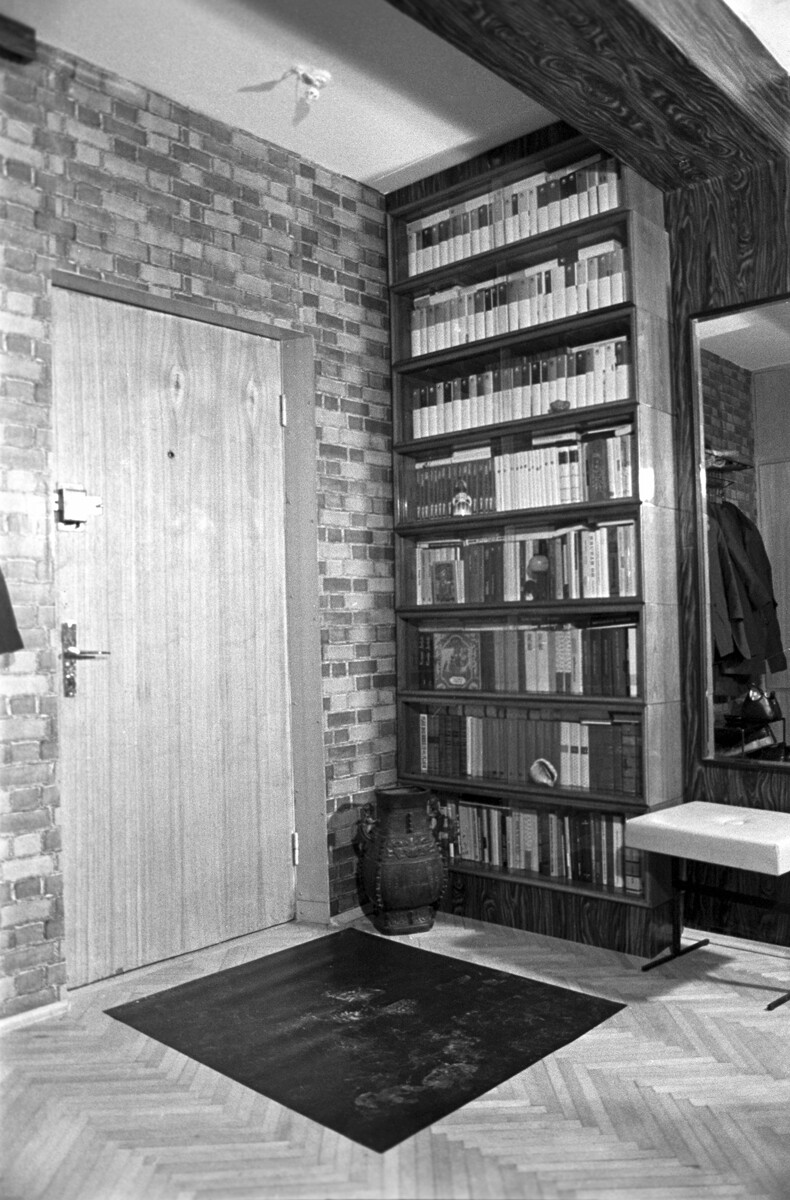
Well, since we’ve now mentioned book shelves, it’s probably only fair to talk more about this absolutely ESSENTIAL part of any Soviet apartment.
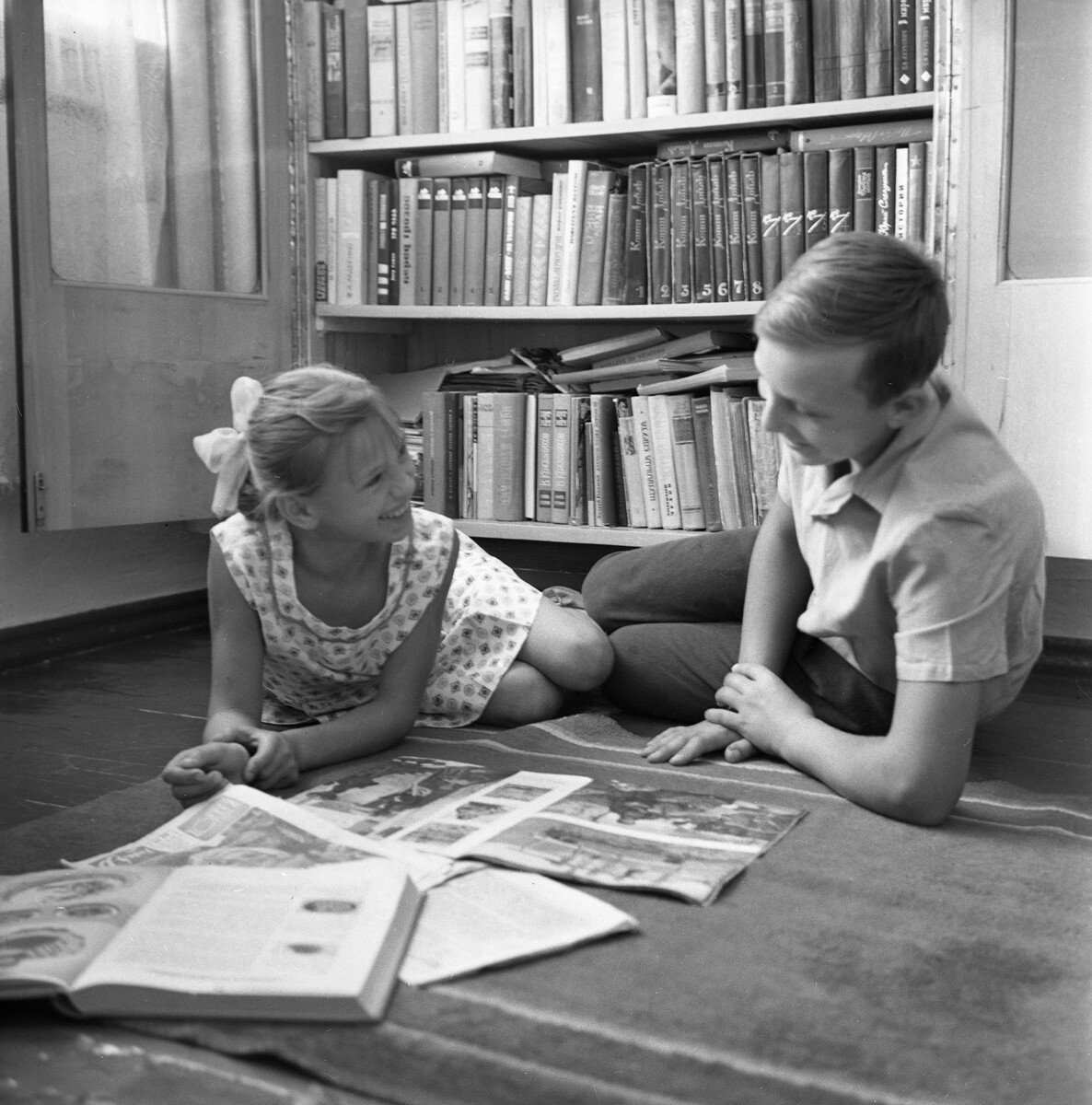
There were big book shelves and cases (And a floor lamp to give the light for the reading man).
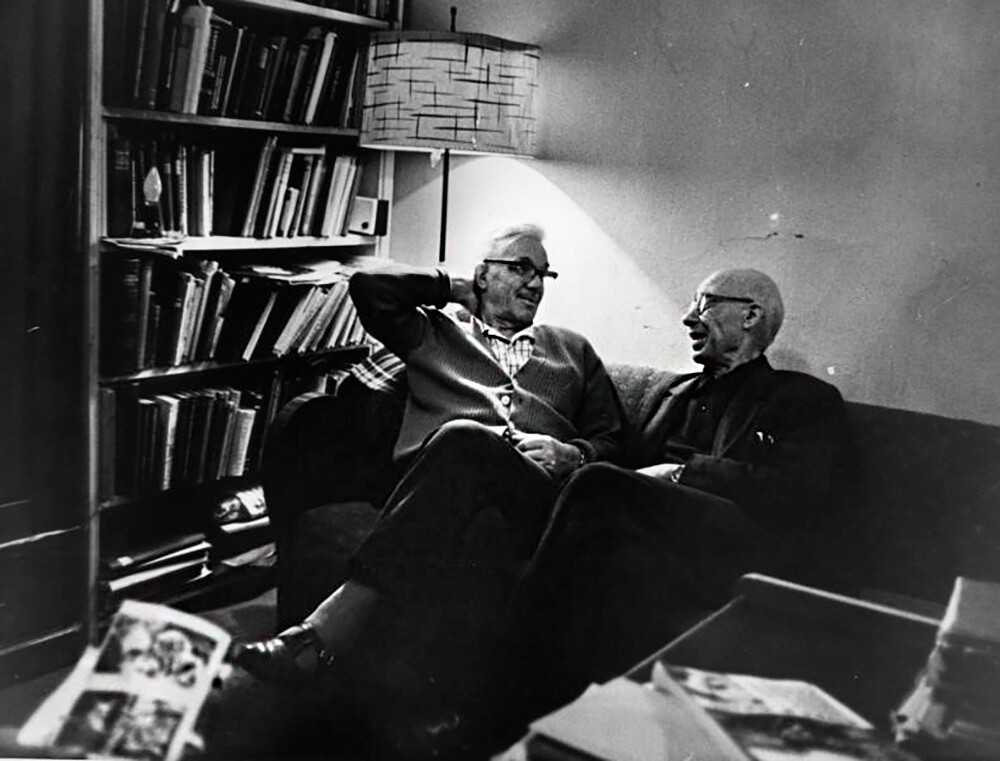
And also separate bookshelves that could be transformed like Tetris and hang on the wall in random positions.
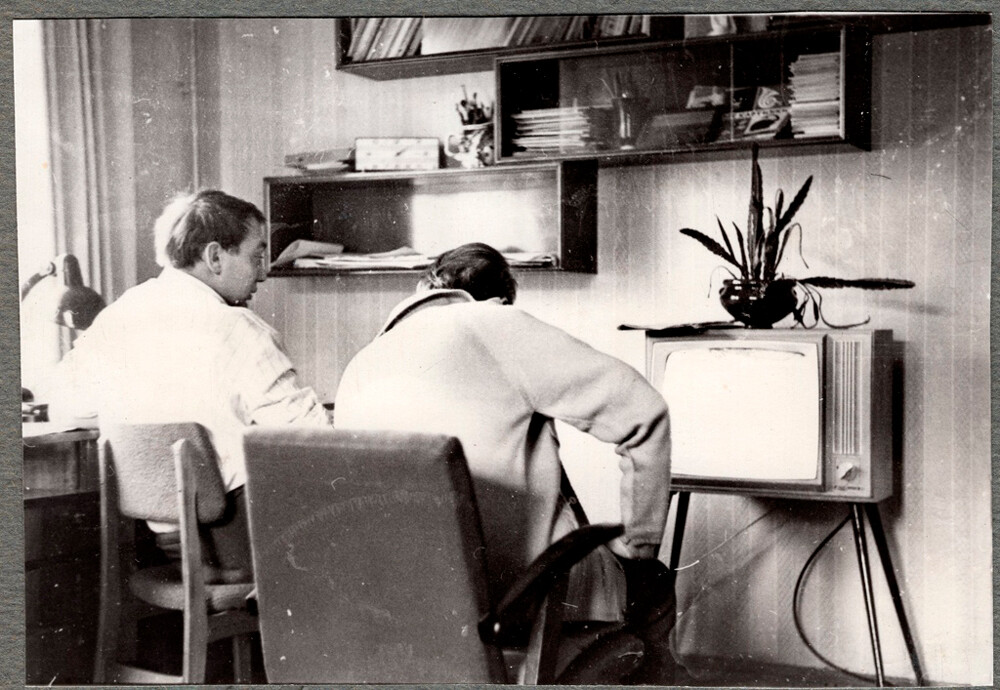
Remember, the Soviet Union was a reading nation! If there were no more space for books, they were just laid in stacks all over the apartment.
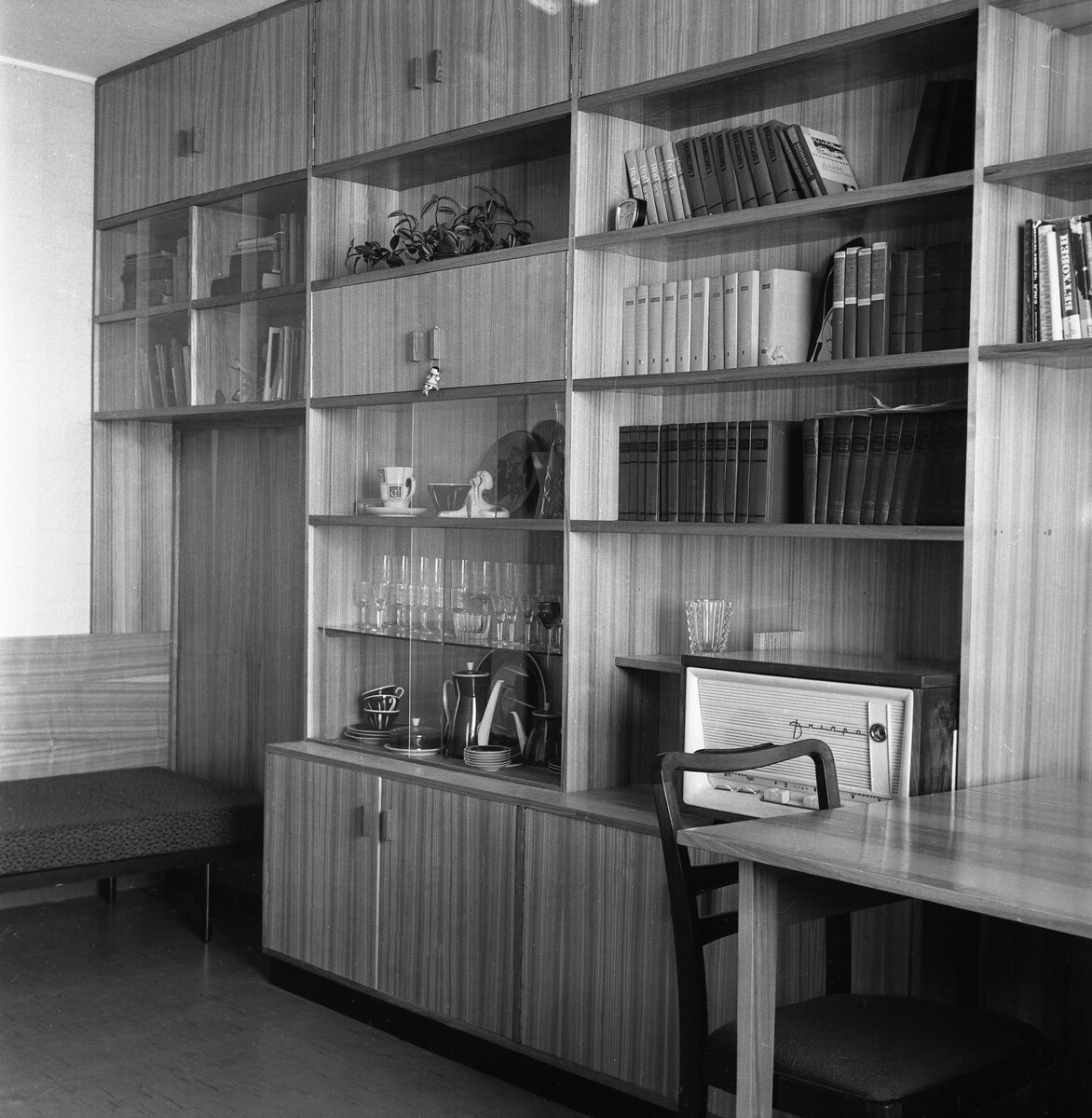
Now, follow us to the most important part of the Soviet apartment (and the Soviet way of life) - the kitchen. All the important talks happened in the kitchen…
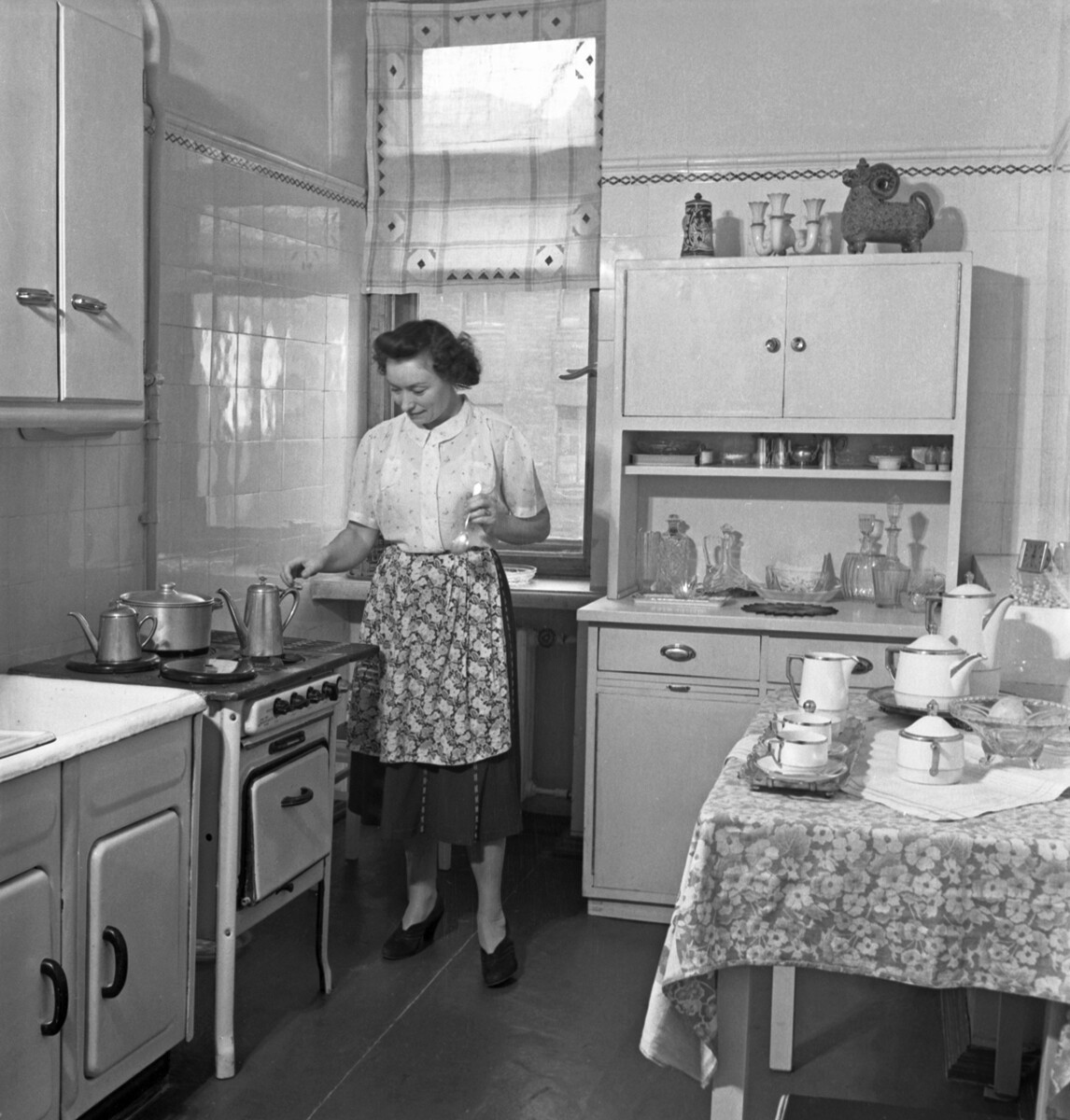
However, most kitchens were so small that sometimes a family of four could barely dine together…
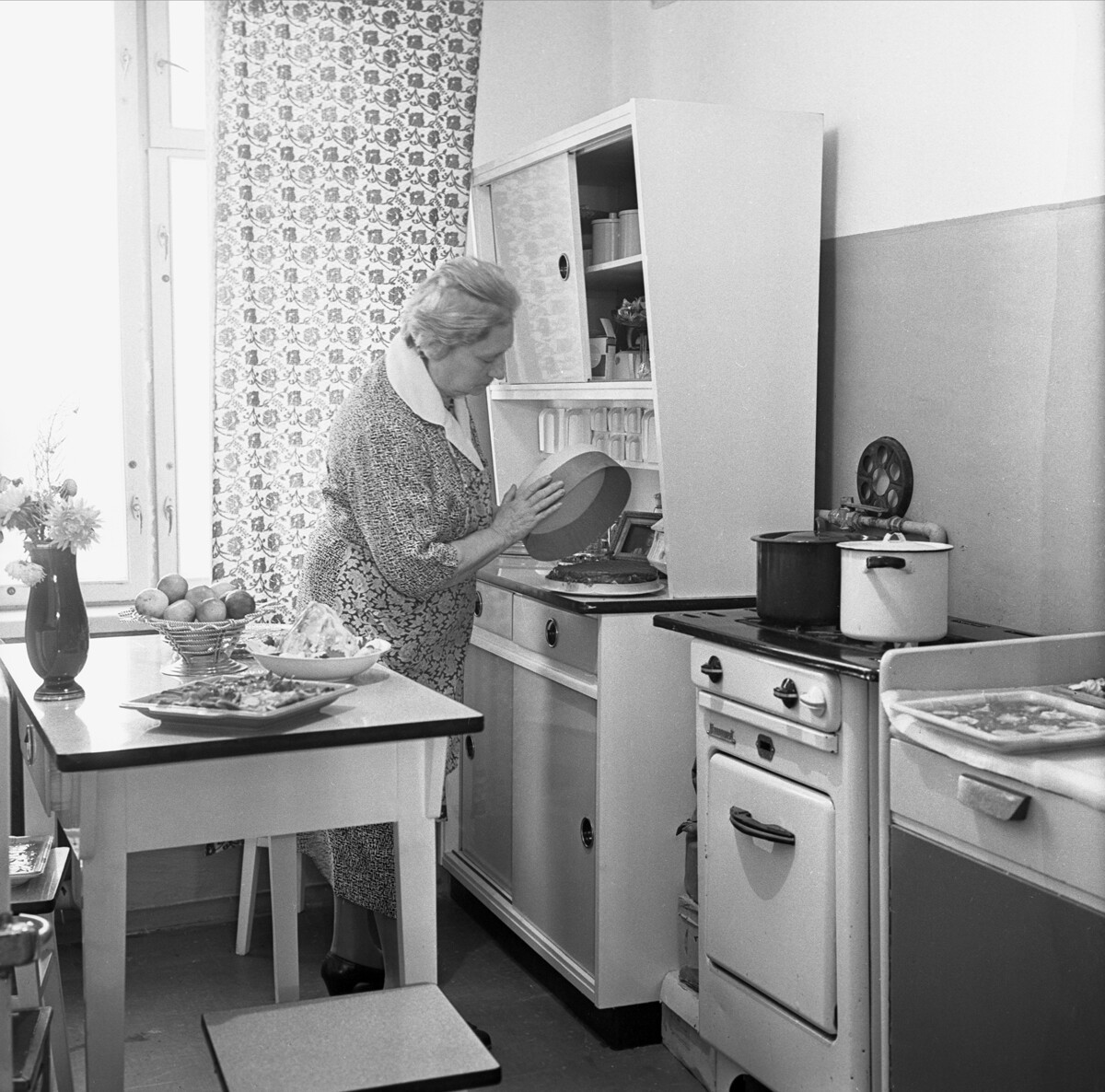
Usually, it was equipped with a counter, a fridge, a gas cooking stove, a sink and a small table.
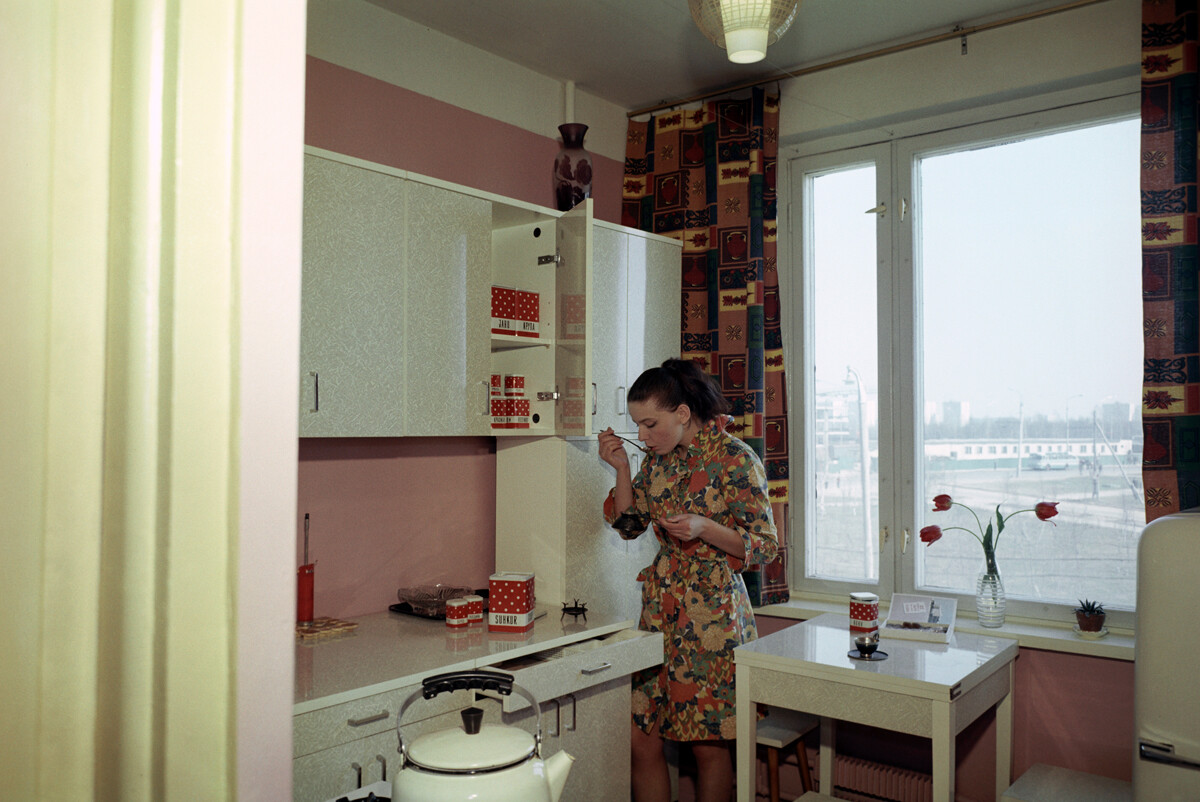
Usually, there were stools with legs that could be unscrewed. Extra chairs were stored somewhere behind the wardrobe. Only a few kitchens were equipped with normal chairs with a backrest, simply because they required more space.
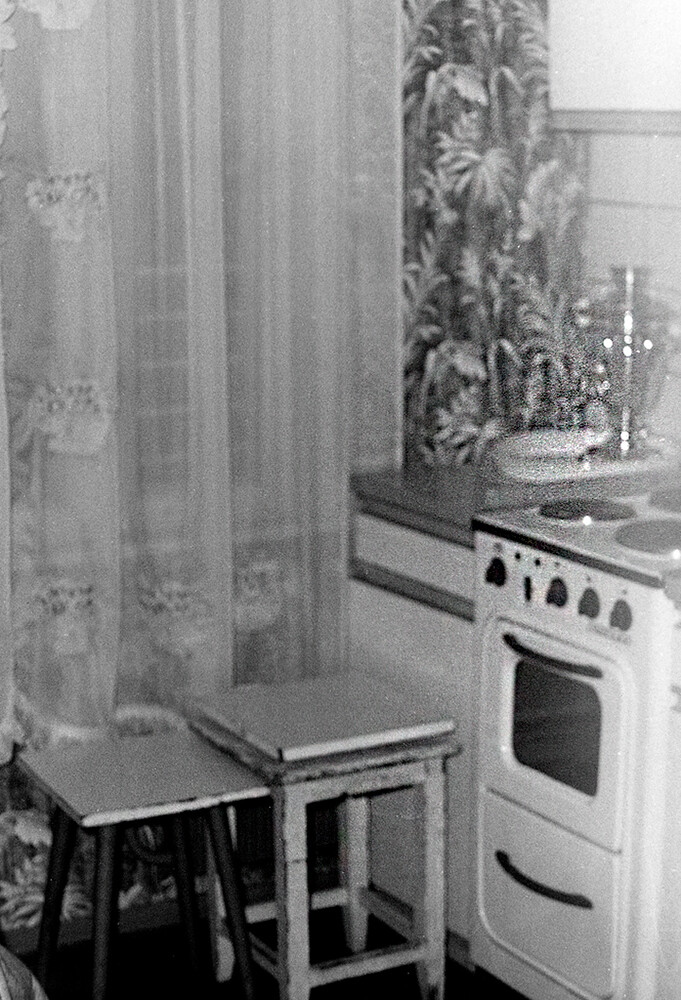
It was common to have many guests gathered in these small apartments, frequently on birthdays or other events (even weddings). Ordinary Soviet people simply had no money for restaurants. So, if guests came, the kitchen table was often moved to the living room (or, if lucky, some apartments had fold away tables for such occasions).
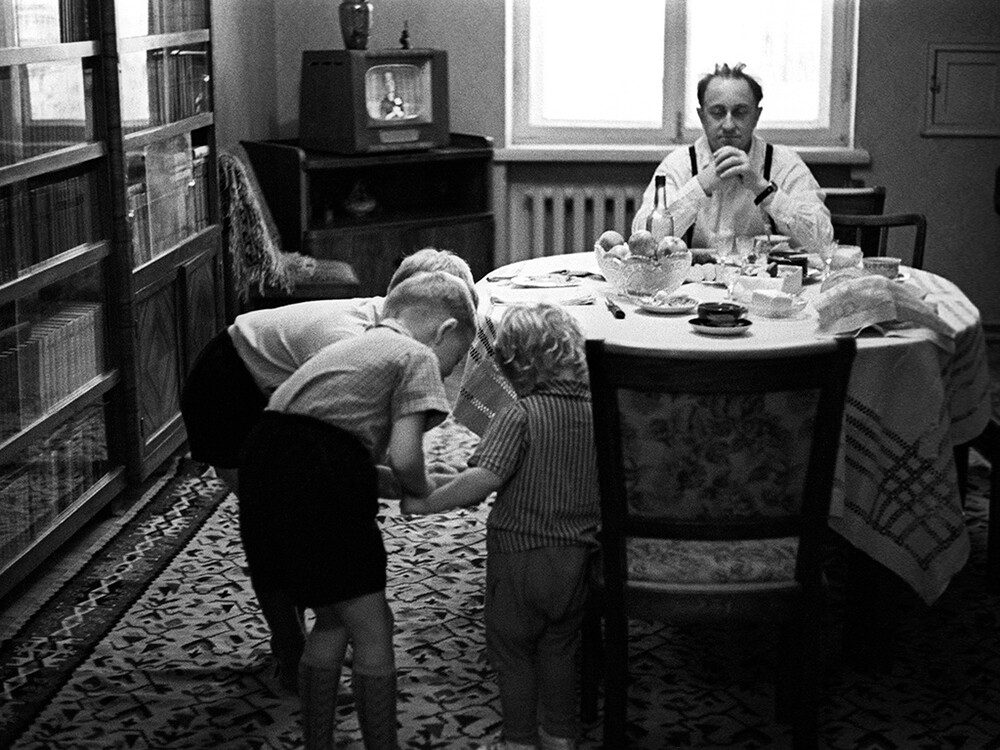
After dinner, the table was moved into the corner and the space turned into a makeshift dancefloor.
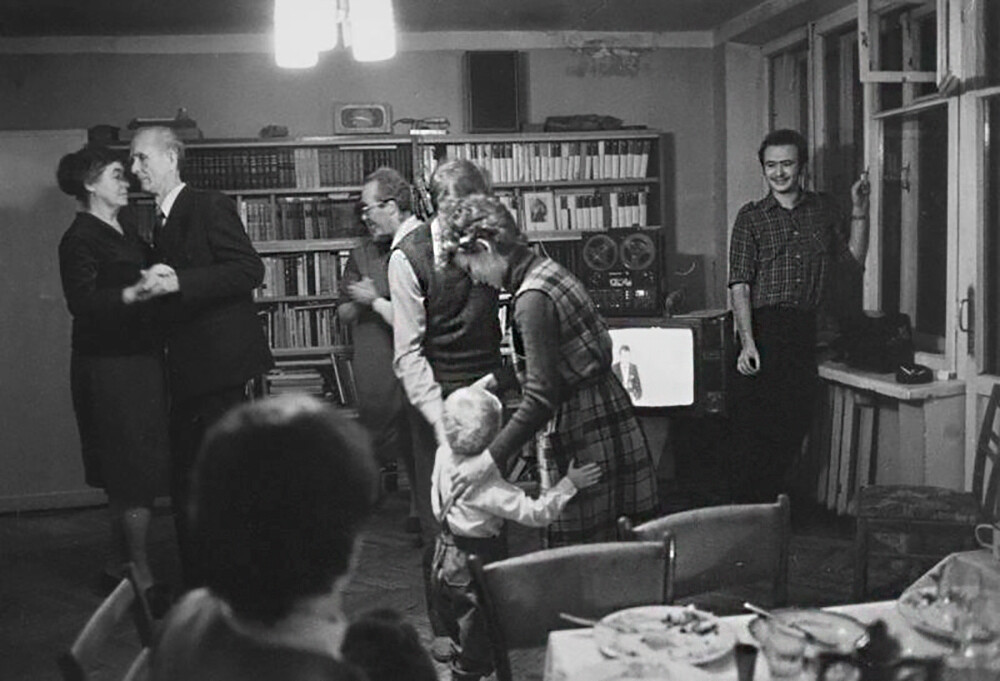
Usually, the living room was also the dining room, the recreation room, the cabinet and the parents’ bedroom! Or, it could be the only room and everyone slept there. (And an entire family could also just have a room in a communal apartment).
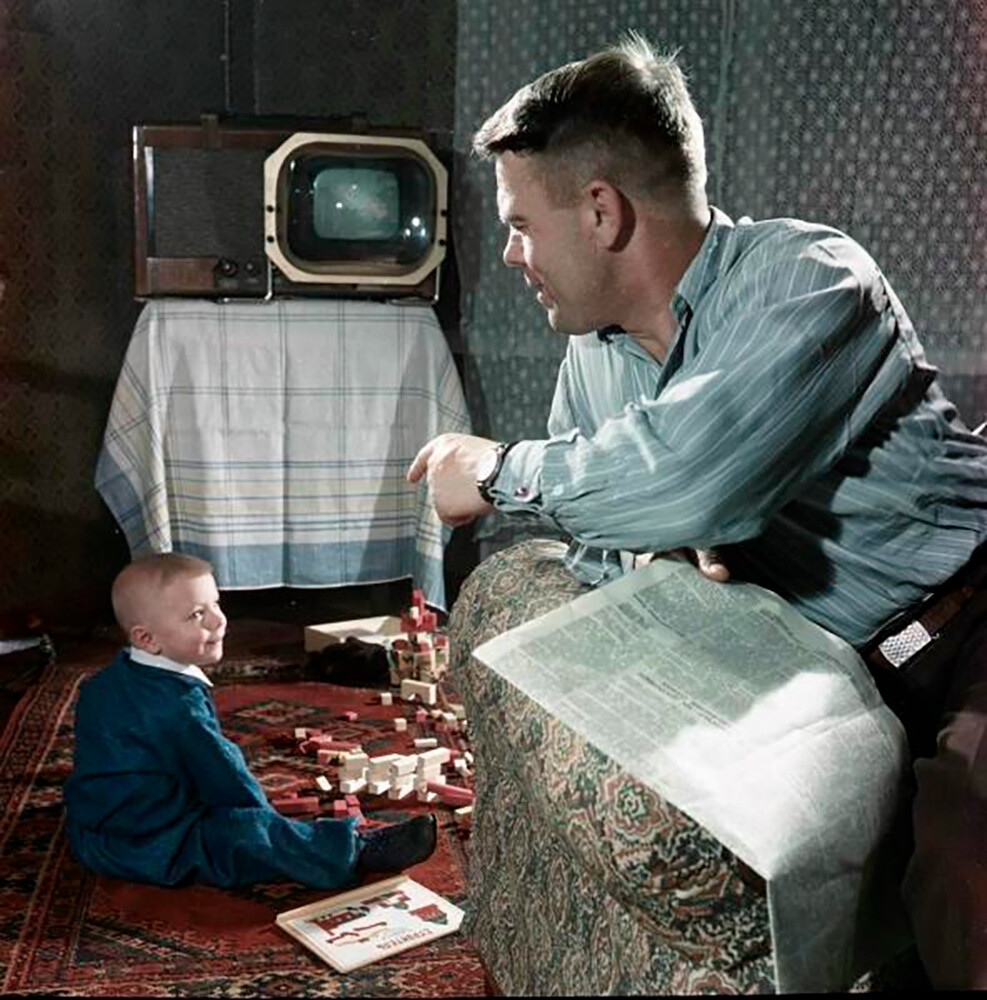
At the same time, there was usually no proper bedroom in a Soviet apartment and very few Soviet people had a double bed, preferring a folding sofa that saved space. And it would folded and unfolded every day.
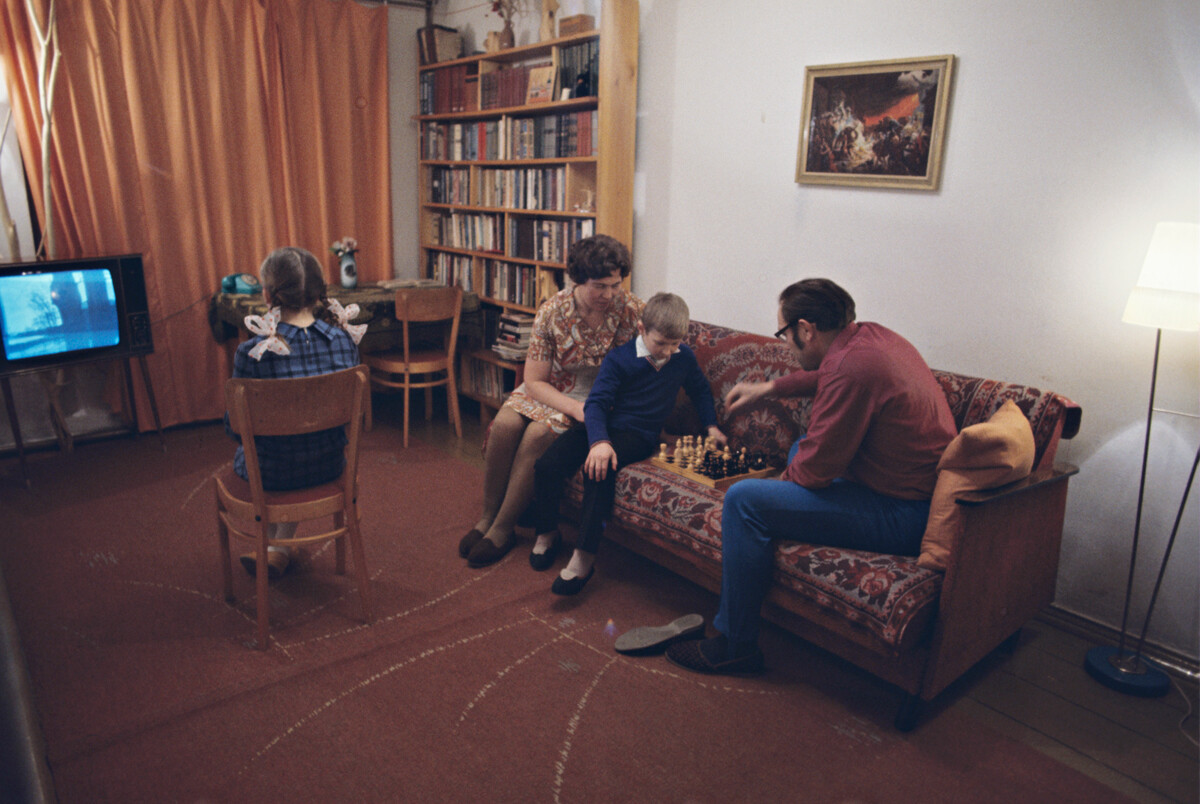
School kids also did their homework in the living room.
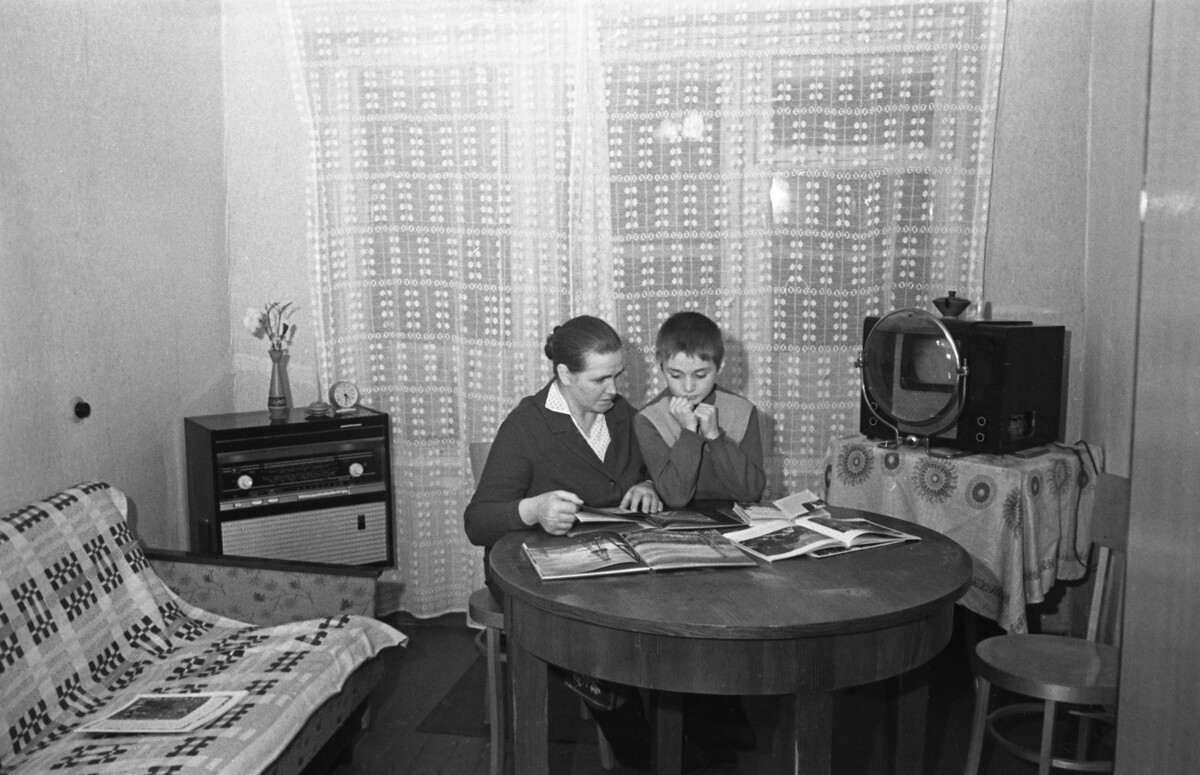
And it was pure luxury if a kid managed to get their own room.
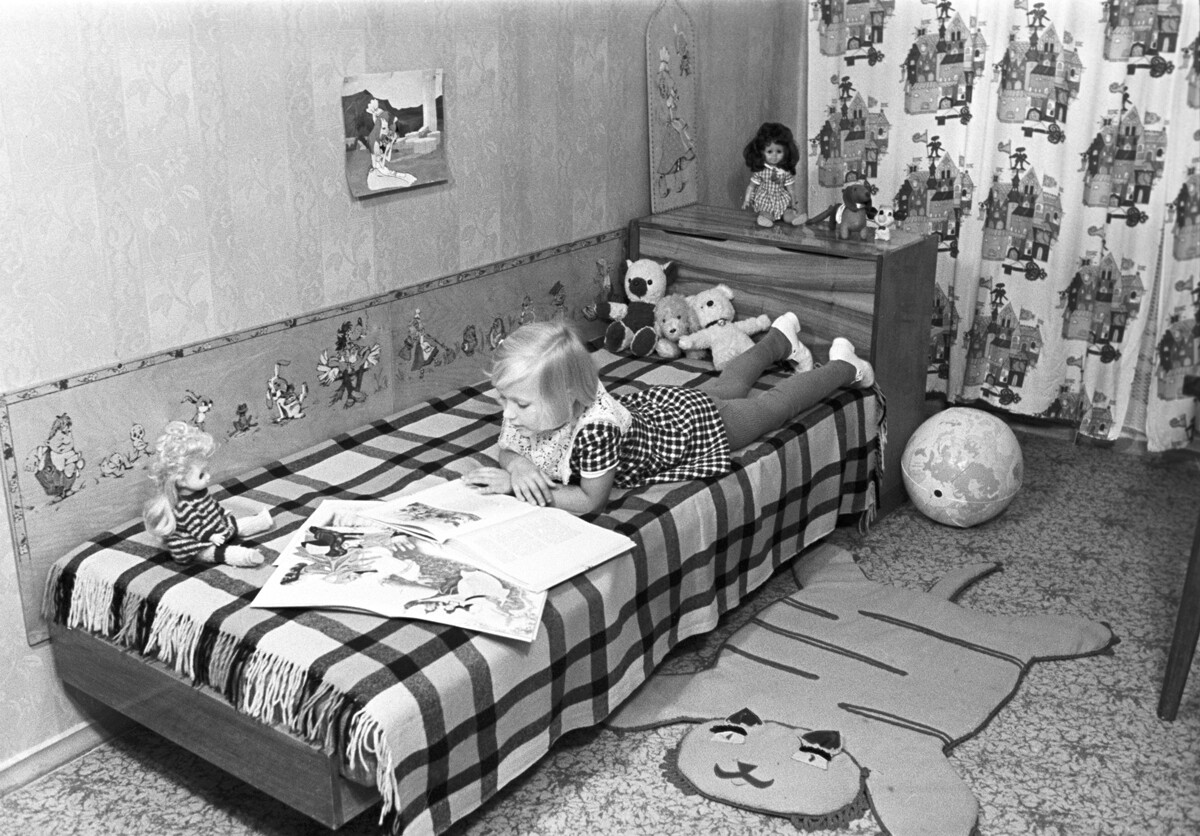
Usually, a bedroom had to be shared with siblings… or even grandparents.
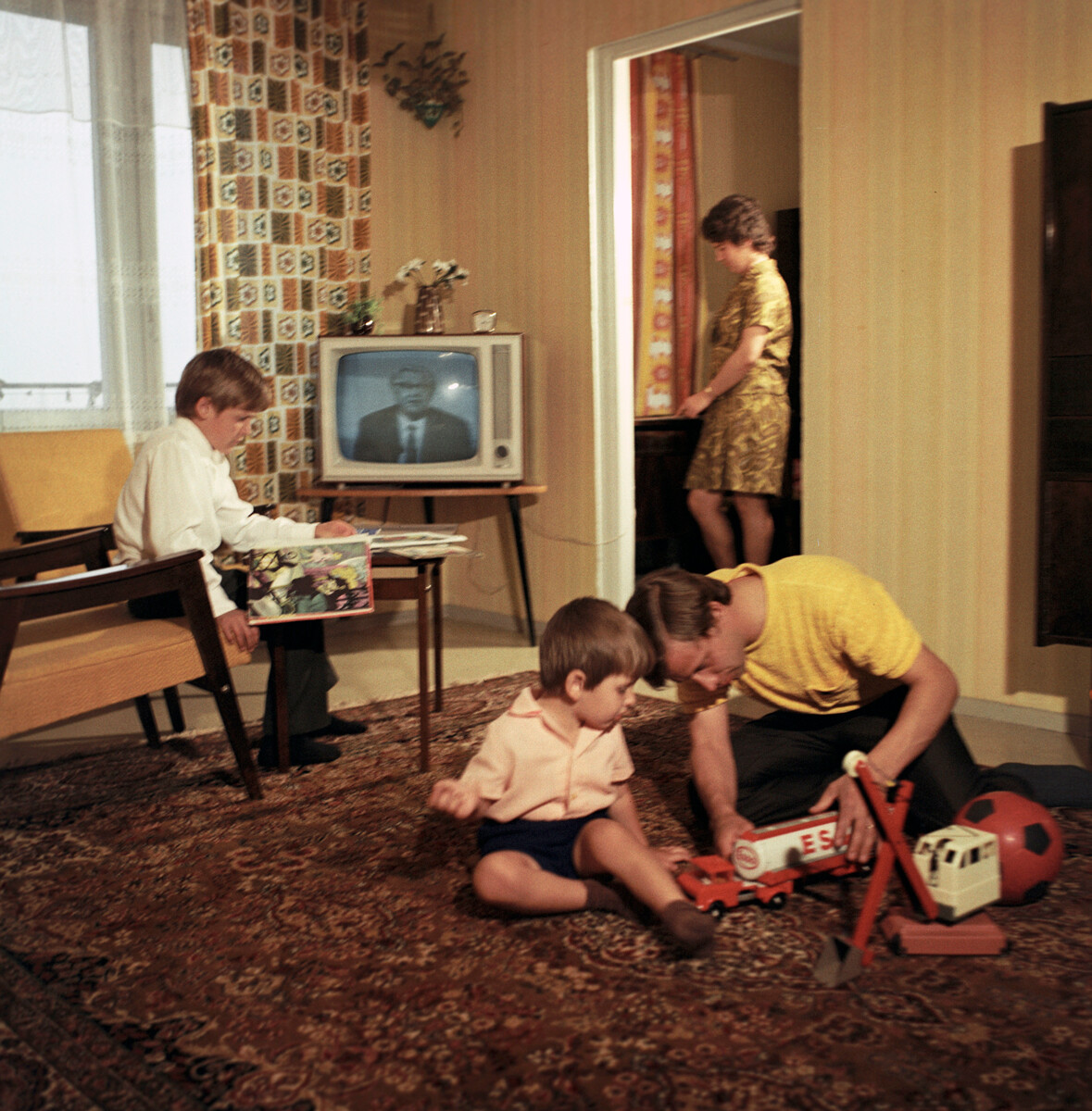
That’s another peculiar thing about the Soviet apartment. All the furniture was facing… the TV. All the sofas, chairs and couches. It was a kind of Soviet center of gravity. Adults watched news outlets everyday, while kids watched the Good Night, Little Ones! children’s show.
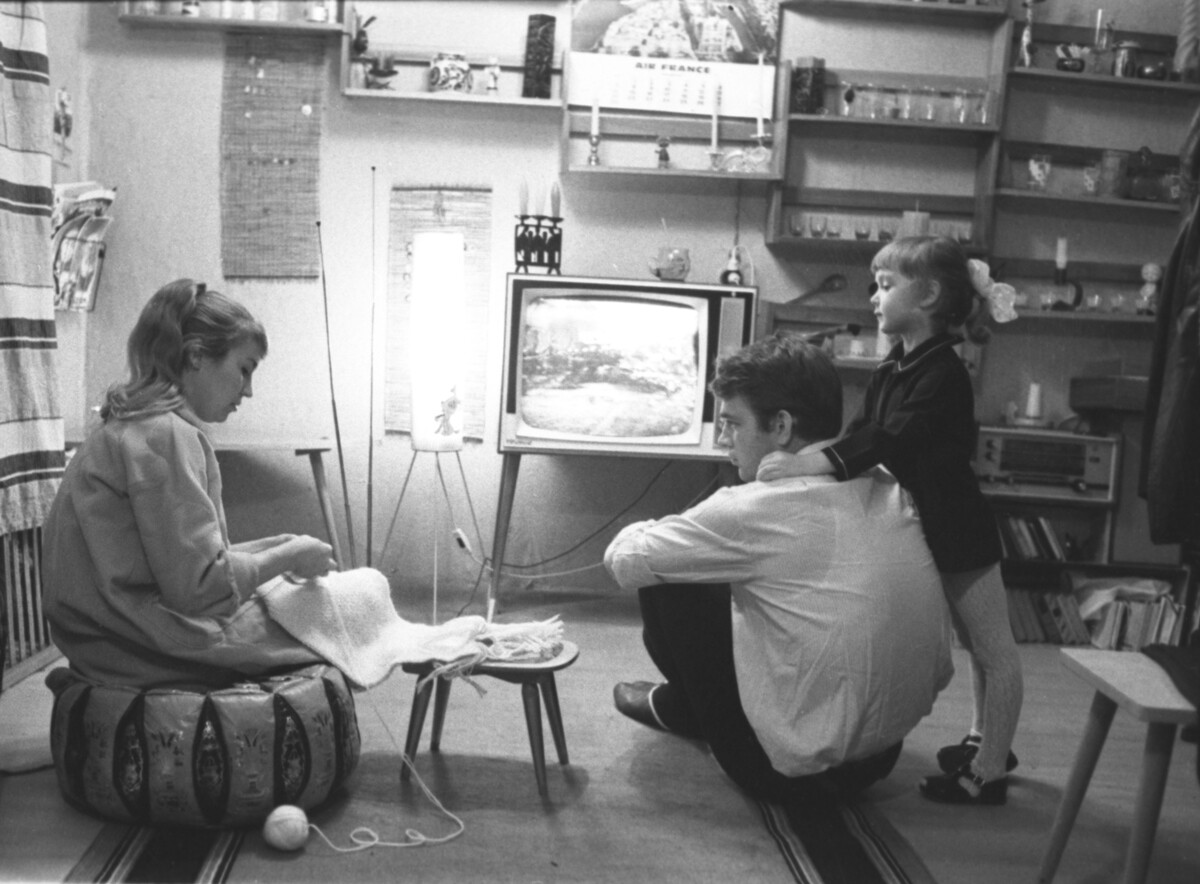
You’ve probably already noticed the carpet… All Soviet apartments had carpets and the habit of putting large carpets on the floor remains to this day, as people who grew up in the USSR do not feel “cozy” with a “naked” floor.
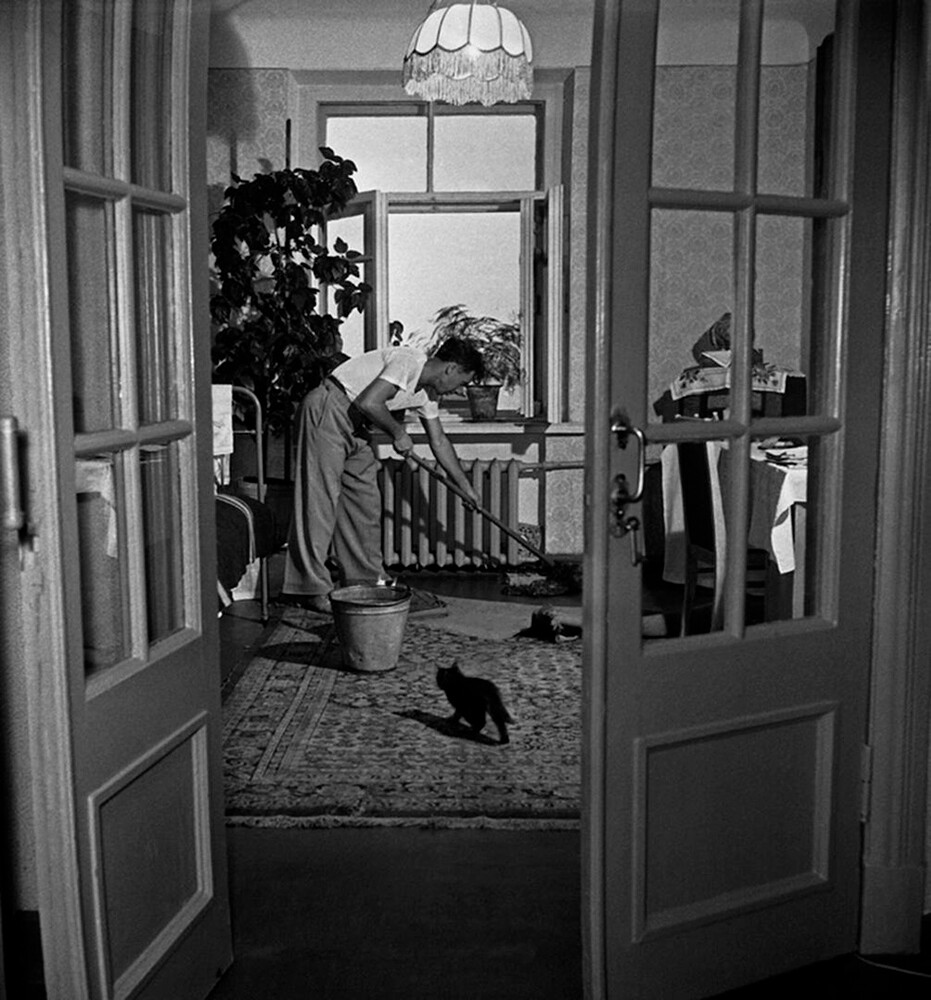
Carpets were also hung on walls… This was firstly to keep warmth in, because walls in the Soviet residential buildings didn’t always save from freezing temperatures. But, it was also a sign of prosperity.
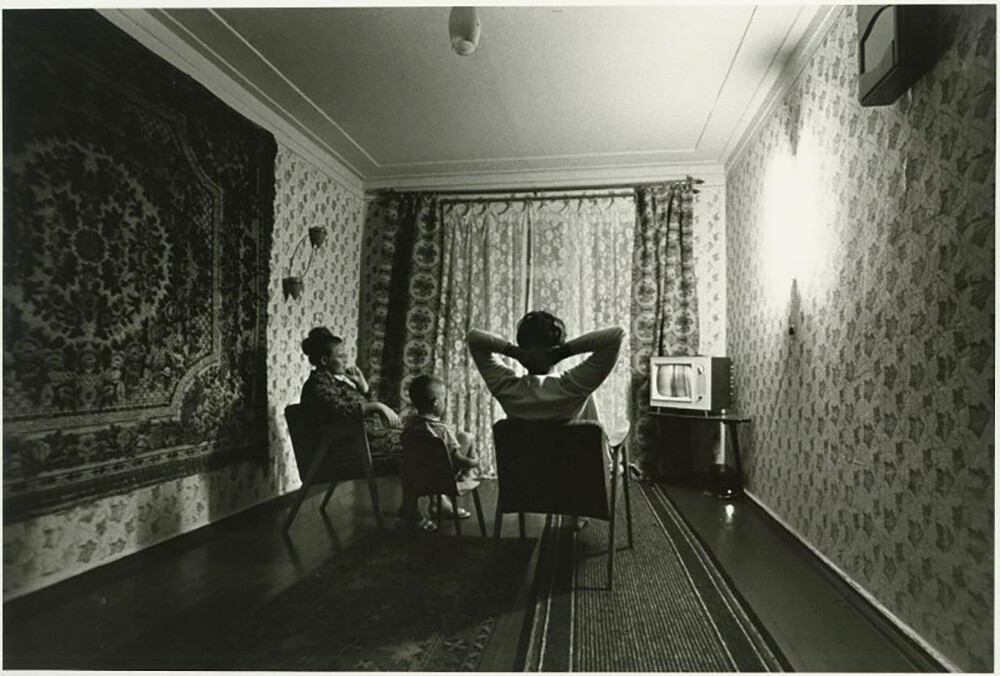
Another thing that had that much sense as wall carpet was a сupboard displaying ceremonial sets of dishes - and glassware, as well as sets for tea and coffee. The thing is that they were NEVER used. These dishes were to be looked at, not to eat or drink from. Although, they were occasionally used for special occasions! Nowadays, people often joke that these occasions were probably the visit of someone no less important than the Queen of England or the Soviet Communist Party General Secretary!
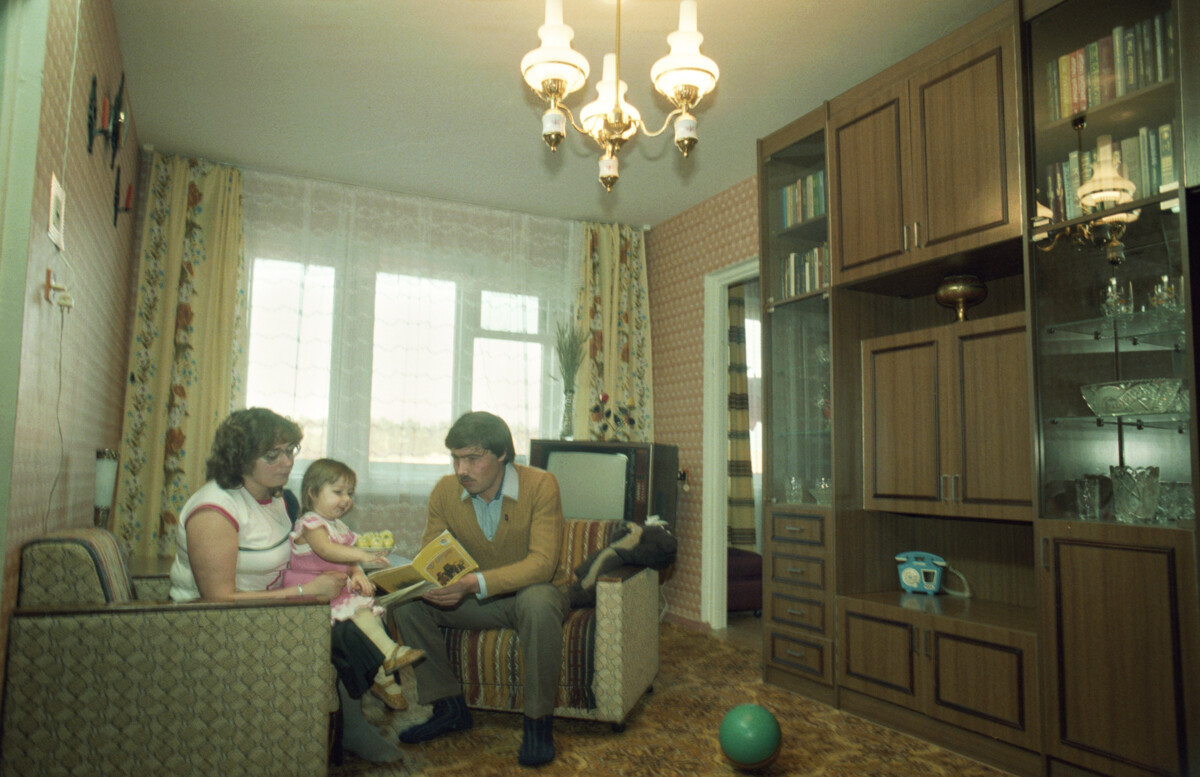
Despite apartments having so little space, people could always find space, not only for bookshelves, but also for a piano…
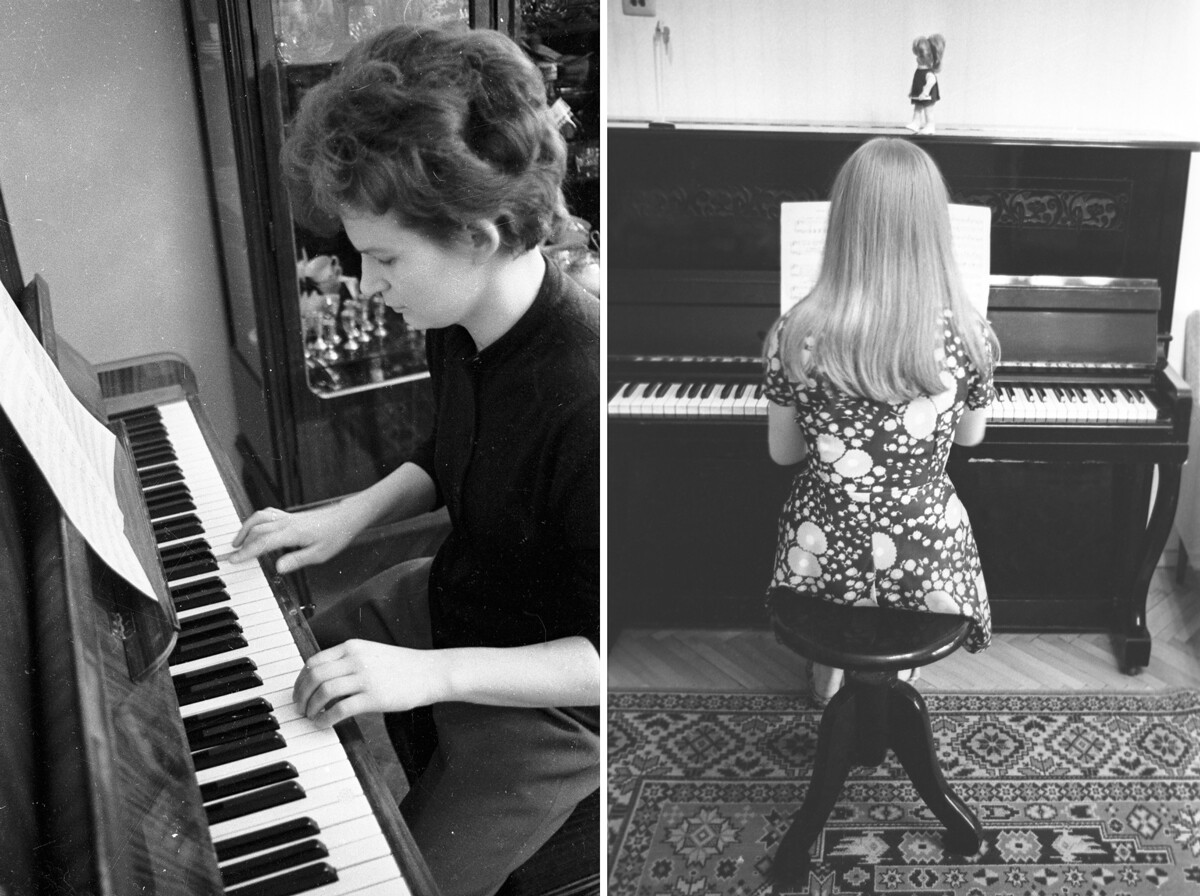
…for a guitar…
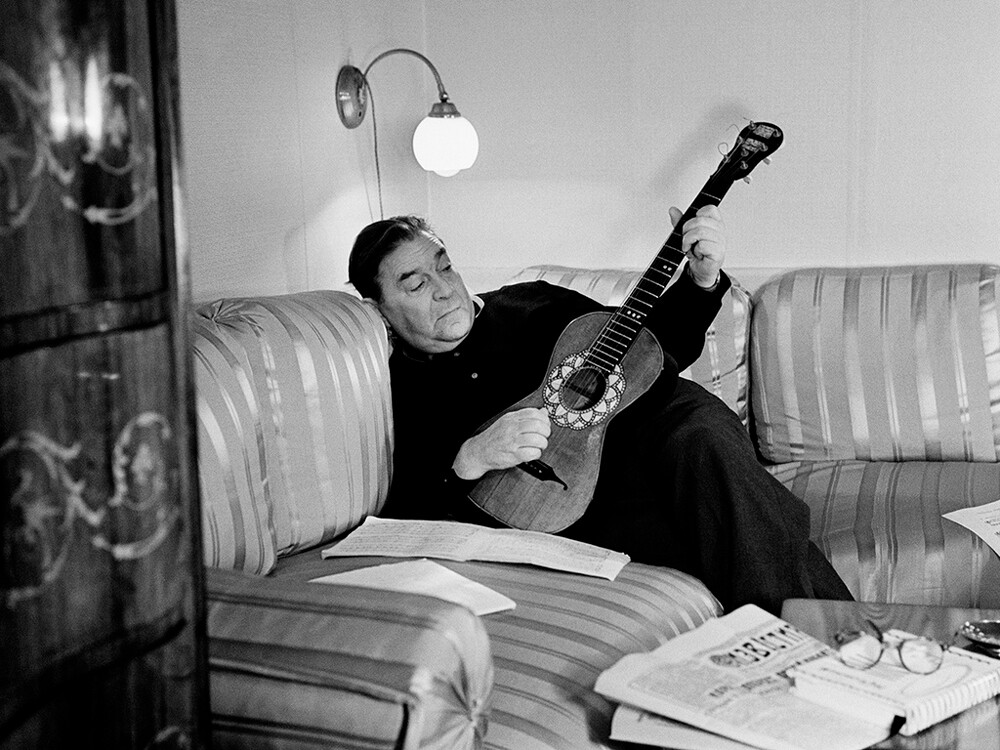
…for a phonograph (and other record players)…
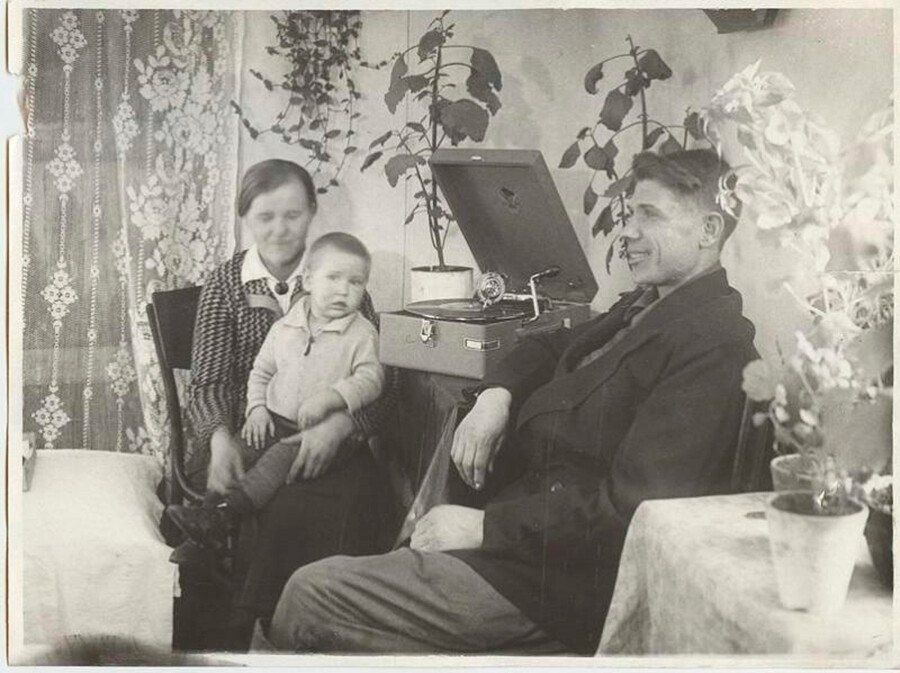
…and for portraits or busts of Stalin or Lenin.
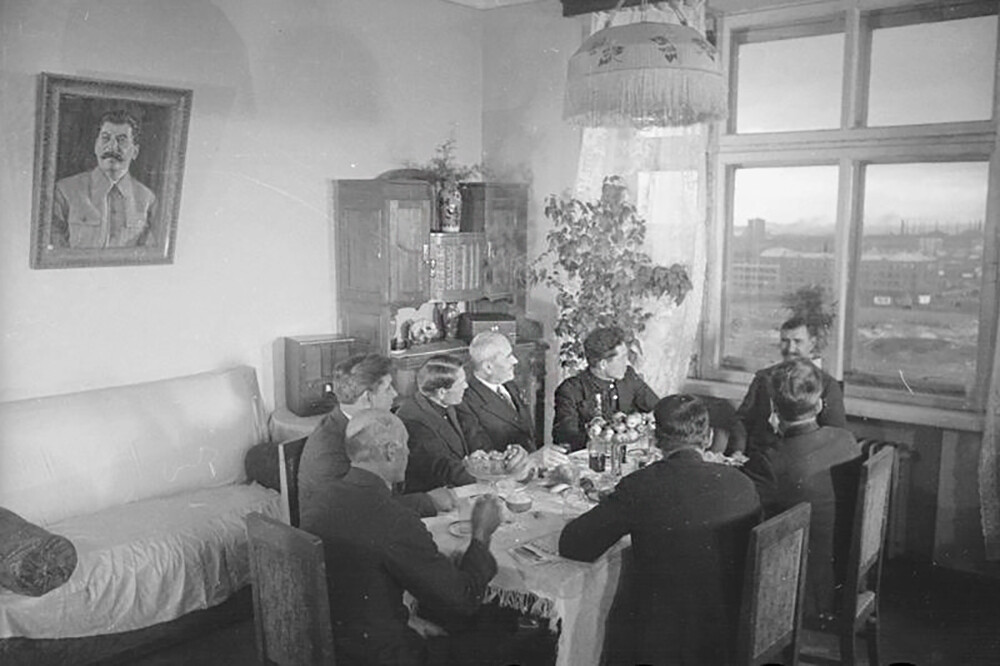
Well, it seems we’ve completed our tour around a typical Soviet apartment. Oh, wait, there’s also the balcony!
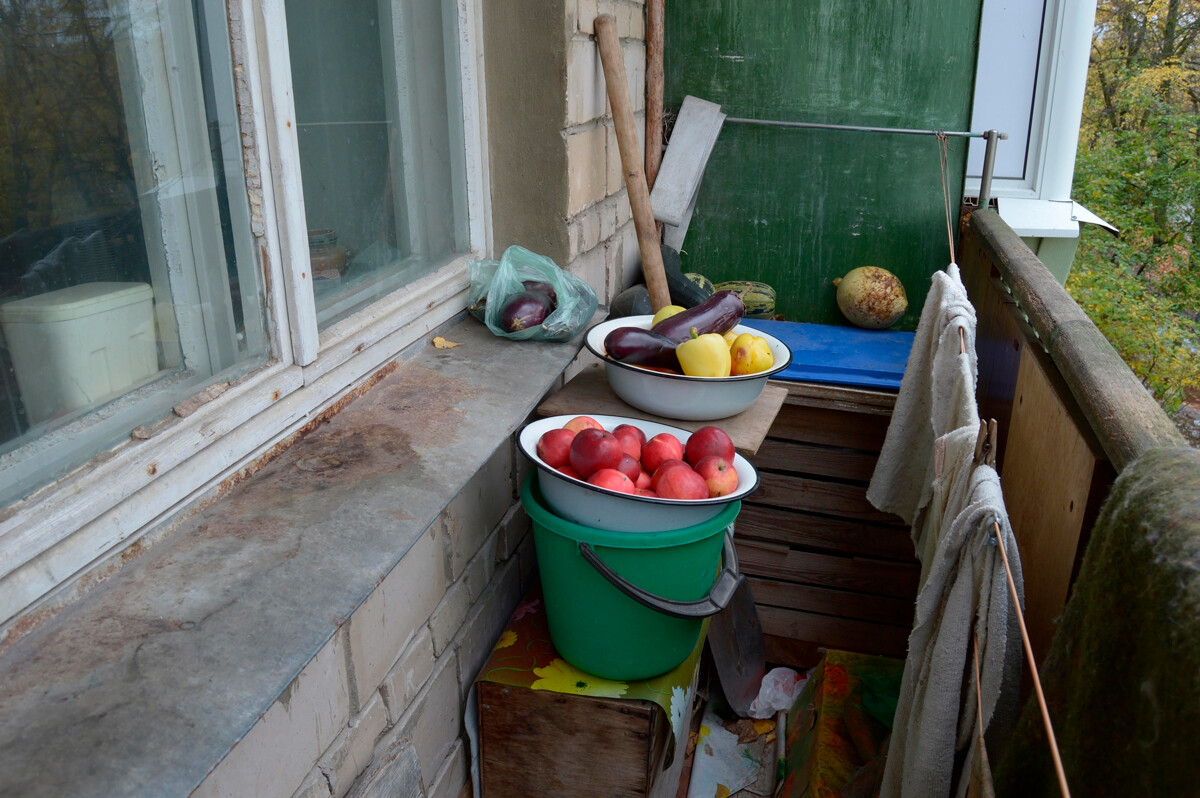
Without having enough space for storage, the balcony was usually used not as a nice place to plant flowers and sit on garden chairs, but as a storage room with all kinds of junk.
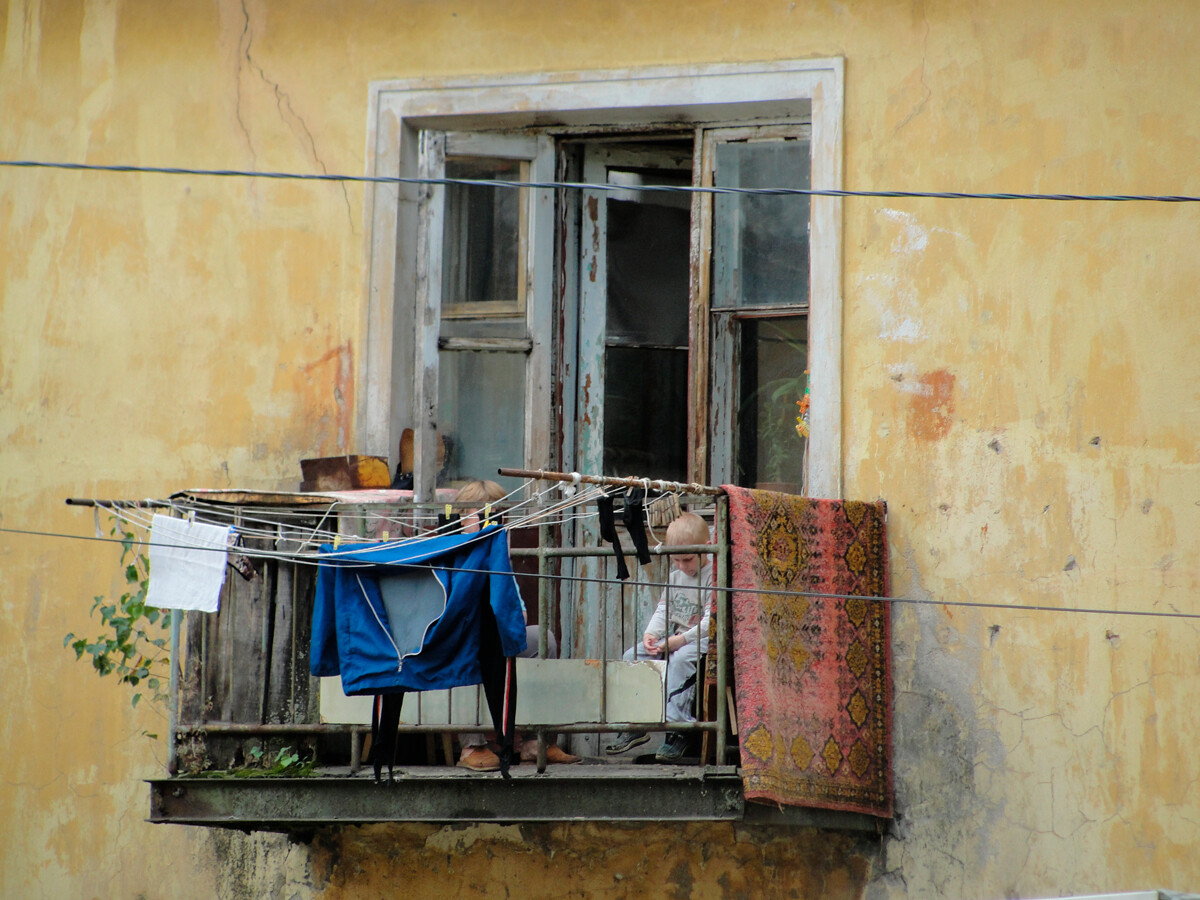
Old wooden skis, jars for pickles, broken TVs and radios… find out what you could find on a Russian balcony here.
